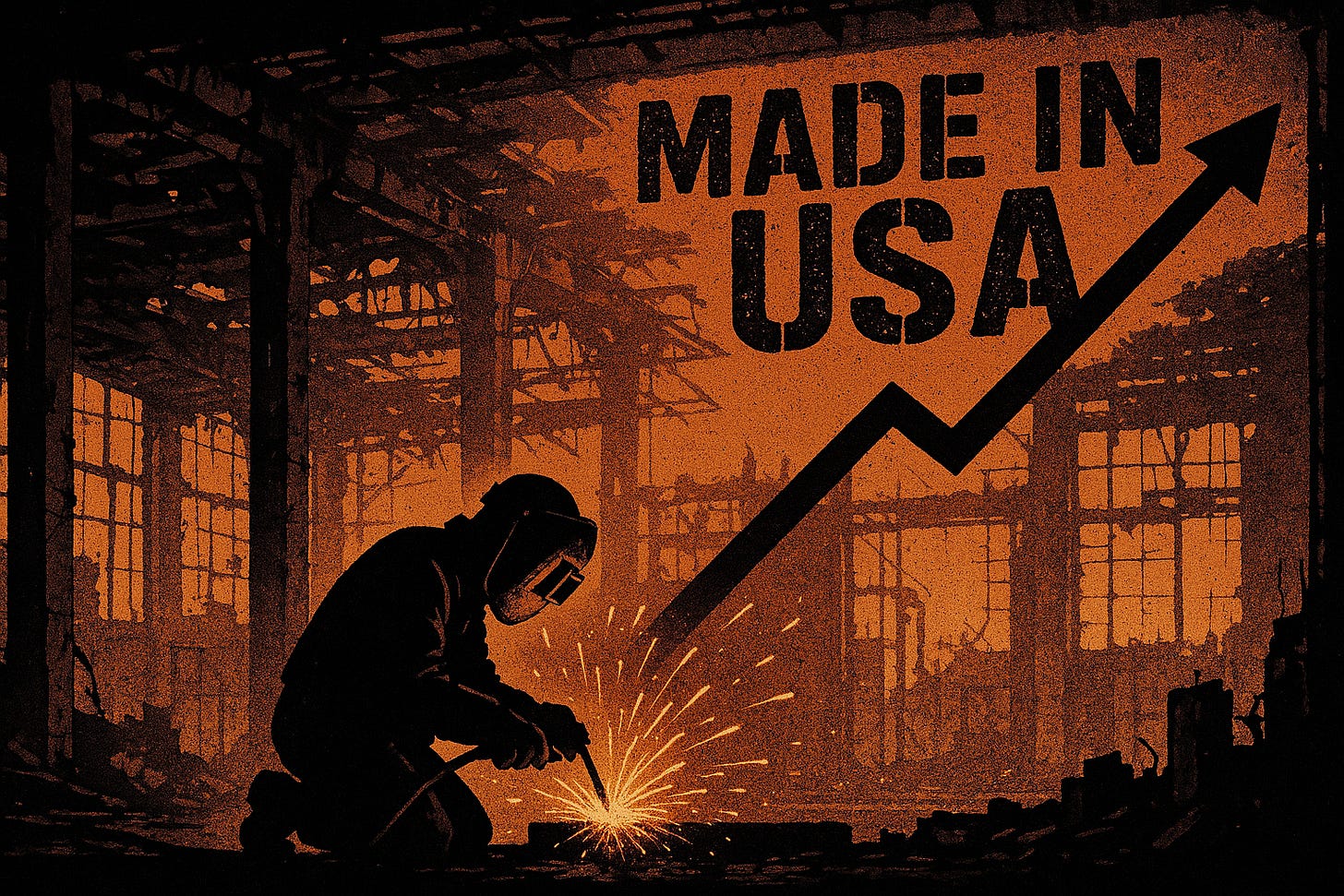Rust Belt Reborn: The Manufacturing Cure for America’s Deadliest Delusion
How Bringing Back Factories Can Save the 60%—and the Nation—from a Knowledge Economy Mirage
Sixty percent of the U.S. population lacks the intellectual capacity for knowledge-work jobs. They read at a 6th grade level or below.
In years past, these people would work in factories, building some of the world’s most iconic products, doing so with pride, and generating tremendous value for their employers, for their communities and for the American economy.
But these people have no real place in our vaunted "services economy", especially with the advent of AI. So they’re relegated instead to low-value-added roles like delivering DoorDash or working at Panera.
No one dares admit this. Instead, we’ve swallowed a comforting lie: that anyone can become a Wall Street oracle or tech tycoon with just the right nudge.
This delusion hinges on a core fallacy—that the problem is software (a lack of knowledge), not hardware (innate ability). For a tiny sliver of the population, this might hold true. But for most, it’s a fantasy.
So, rather than reshoring manufacturing to give these people dignified, value-creating jobs, what did we do?
Invented millions of meaningless government jobs, where paper shuffles endlessly, requiring college degrees for no good reason.
Pushed costly college degrees on everyone, drowning them—and society—in $1.7 Trillion of toxic debt.
Doubled down when that failed, urging more education with graduate degrees, to the point that 1.4% of the US population (and rising) are now lawyers.
Demonized manufacturing work, shaming those who do it to herd people into this new system.
Peddled the influencer pipe dream, where a lucky few might strike it rich if only they flash enough skin or dance goofily enough.
Kept piling on fixes—free preschool, school choice, retraining programs—grasping at straws when none of it worked.
The fallout from this collective self-deception? Catastrophic.
China’s manufacturing dominance now towers over America’s, a gap so vast it’s nearly unbridgeable without drastic action.
Ten percent of American women aged 18-24 are on OnlyFans.
Young men are hooked on gambling at unprecedented levels.
The bottom quartile of college grads, with few decent options, become teachers—perpetuating the cycle.
Phony jobs and degrees have pushed the U.S. to the brink of financial ruin, crushed under trillions in debt and unfunded entitlements.
Communities once thriving in manufacturing, despite billions spent to retrain them for the knowledge economy, are worse off than ever—crime, illegitimacy, and every marker of collapse soaring.
What’s the solution?
Exactly what President Trump is doing: radical, immediate action to resurrect U.S. manufacturing.
Maybe someday, Elon Musk or another visionary will invent a "genius pill" to unlock the total knowledge economy our deluded leaders envisioned over the past 40 years. Until then, bringing back manufacturing isn’t just the best option—it’s the only one.



